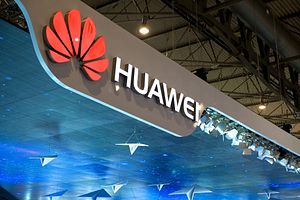On October 20, Sweden became the latest country to ban Huawei, China’s telecommunications giant, from participating in its 5G networks.
PTS, the Swedish telecom regulator, said that companies supplying 5G services in the country will have until 2025 to remove any equipment from Chinese firms Huawei and ZTE from their infrastructure networks. PTS added that the decision was based on the advice of Sweden’s military and security services, which apparently described China as “one of the biggest threats against Sweden.”
Sweden joins the United States, Australia, the U.K., and France in instituting a ban on using Huawei and ZTE equipment in 5G networks.
Chinese Foreign Ministry spokesperson Zhao Lijian did not mince words at a press conference the day after the announcement, saying that “China deplores Sweden’s decision.”
Zhao accused Sweden of using “national security as a pretext to slander Chinese companies, openly oppress Chinese telecom companies, and politicize normal economic cooperation.” He added that Sweden should “correct its mistake” to “avoid negative impact on China-Sweden economic cooperation and the Swedish businesses operating in China.”
Zhao’s remarks echoed a similar press release issued on October 20 by the Chinese Embassy in Sweden.
Unlike other countries that have instituted a ban on Huawei and ZTE, Sweden has its own firm competing for contracts to build 5G networks at home and abroad: Ericsson. China’s telecom regulator may now threaten Ericsson’s activities within China, where it has contracts to supply equipment for 5G networks. Of course, as a direct competitor to Huawei, Ericsson also stands to benefit from the ban – it has already won at least five contracts in other countries as a direct result of Huawei being forced from the competition.
Sweden seems unafraid of the consequences, however, as it took an unusually forceful approach in announcing the decision. As Stuart Lau noted for the South China Morning Post, “Sweden’s ban on Tuesday of Huawei Technologies and ZTE Corp from its 5G networks … did not surprise observers. It is the blunt reference to China as a threat to national security that did.” Lau also pointed out that Sweden’s ban is among the most direct in Europe; other countries, like Italy, have avoided a confrontation with China by adding bureaucratic and financial hurdles that would incentivize firms not to work with Huawei, rather than instituting an outright ban.
The outspoken stance may be because, outside of the concerns about Huawei itself, Sweden has other reasons to see China as a threat. Stockholm has been involved in a thorny dispute with Beijing for years over the fate of Gui Minhai, a Swedish national who disappeared from Thailand in late 2015 only to reappear in Chinese custody. Gui was one of five men linked to a bookstore in Hong Kong to disappear at around the same time, leading most analysts to believe the charges against him are politically motivated. Gui was initially released in October 2017, after nearly two years in custody, only to be abducted again in January 2018 while on a train to Beijing – in the presence of Swedish diplomats, no less.
Since then, Sweden has tried (to varying extents, but always without success) to wrangle Gui’s freedom, while China has taken an increasingly shrill tone in rejecting any criticism over the case. In 2019, after Swedish PEN gave Gui a human rights award, China’s ambassador to Sweden told a radio station that China has “shotguns” for its enemies. As Jojje Olsson noted in his analysis for The Diplomat, the ambassador’s threat sparked unified outrage from across Sweden’s political spectrum.
China’s image wasn’t helped any by the curious case of Swedish Ambassador to China Anna Lindstedt, who arranged an unauthorized meeting between Gui’s daughter, Angela, and businessmen with strong China ties in order to pressure Angela to stop discussing her father’s case in public. Lindstedt was charged, and later acquitted, of “arbitrariness in negotiations with a foreign power” in what Olsson called “Sweden’s biggest diplomatic scandal in modern times.”
As a result of these accumulating controversies, China’s image in the country has taken a huge hit in recent years, according to the Pew Research Center. In 2007, just 40 percent of Swedes had a “somewhat” or “very unfavorable” view of China – slightly edged out by the 43 percent who saw China “somewhat” or “very” favorably. By 2019, however, amid the furor over Gui Minhai and China’s heavy-handed response, 70 percent of Swedes saw China negatively. At the time, that was a record high, but the record didn’t last long. In 2020, with the COVID-19 pandemic added to the mix, the proportion of Swedes with negative views of China spiked to 85 percent – a jaw-dropping 71 point gap compared to the 14 percent who saw China favorably.

































